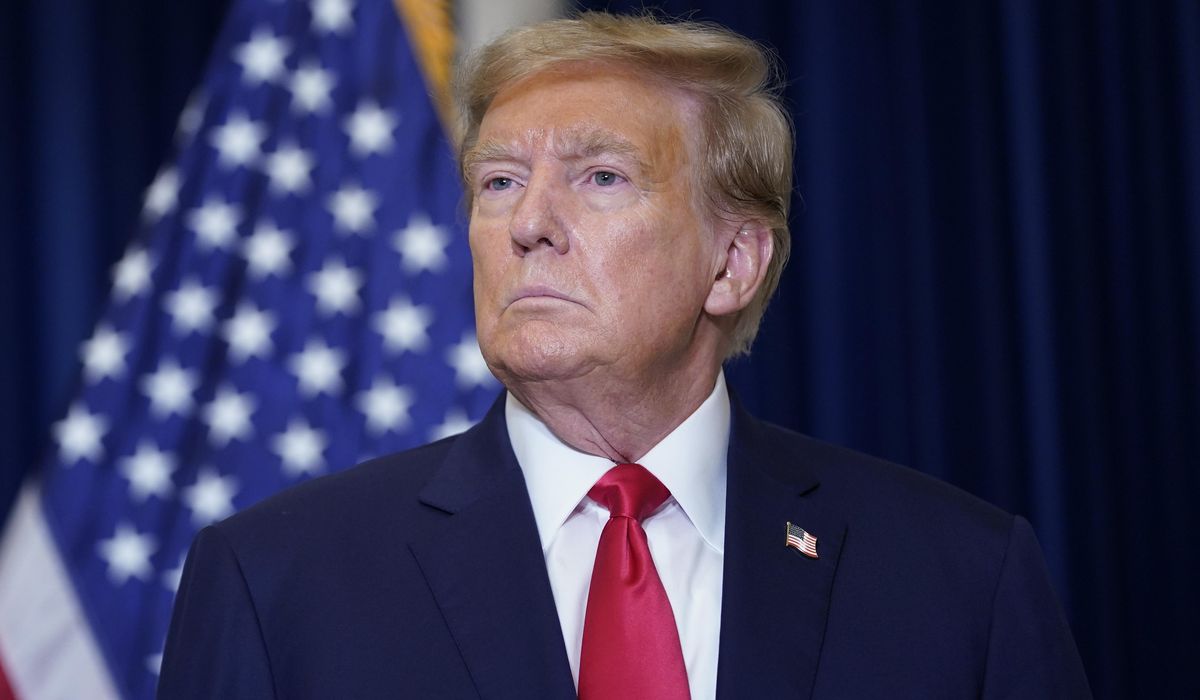


Former President Donald Trump is not immune from criminal prosecution for efforts he took to reverse the 2020 election results while in office, a federal appeals court said Tuesday.
It is a pivotal ruling that could set up another Supreme Court showdown during the presidential campaign.
“For the purpose of this criminal case, former President Trump has become citizen Trump, with all of the defenses of any other criminal defendant,” a three-judge panel for the U.S. Court of Appeals for the D.C. Circuit wrote. “But any executive immunity that may have protected him while he served as president no longer protects him against this prosecution.”
Mr. Trump is likely to appeal to the Supreme Court, which could decide to take up the matter or leave the ruling in place.
A criminal case alleging Mr. Trump conspiring against the U.S. and its voters was put on hold while the immunity claims were disputed in the higher courts.
Mr. Trump said he was acting in his official capacity when he tried to root out election fraud in 2020 and overturn the results. He said presidents have to make tough calls all the time and failing to grant immunity would spark a cycle of political prosecutions from administration to administration.
The court rejected that argument.
“We conclude that the interest in criminal accountability, held by both the public and the Executive Branch, outweighs the potential risks of chilling Presidential action and permitting vexatious litigation,” the ruling said.
Also, Mr. Trump‘s attorney argued he can’t be prosecuted for actions he took as president because he wasn’t impeached and convicted in Congress.
The circuit panel was skeptical of the impeachment argument, even suggesting a president could order the assassination of a political rival and still not face prosecution if Congress did not impeach and convict him.
In its ruling, the court said impeachment and criminal prosecution are separate processes. It also said the impeachment article and indictment charged Mr. Trump with different offenses.
“In light of the very different procedures and purposes associated with impeachment proceedings as compared to criminal proceedings, former President Trump‘s reliance on the Double Jeopardy Clause is misplaced,” the judges wrote. “Impeachment is not a criminal process and cannot result in criminal punishment.”
Oral arguments took place on Jan. 9 before judges J. Michelle Childs and Florence Pan, who were appointed by President Biden, and Karen LeCraft Henderson, who was appointed by George H.W. Bush.
During the wait for a ruling, U.S. District Court Judge Tanya Chutkan delayed Mr. Trump‘s trial indefinitely, raising fears among Trump critics that the trial and a possible conviction would be delayed until after the November election.
Mr. Trump says the trial is part of a coordinated Democratic effort to thwart his political ambitions. He faces four criminal cases up and down the East Coast while he campaigns as the front-runner for the GOP presidential nomination and a rematch with President Biden.
However, the federal election subversion case is viewed as the marquee case.
The appeals court’s opinion ticks through a number of steps that Mr. Trump took to challenge the 2020 election results, including pressuring state officials and the Department of Justice to find voter fraud that could impact the outcome; setting up a false slate of electors in states he lost to Mr. Biden; and leaning on then-Vice President Mike Pence to send the electoral vote-counting process back to the states instead of certifying the votes in Congress.
Mr. Trump rallied supporters in Washington before they walked to the Capitol and broke into the building on Jan. 6, 2021. The ruling notes that many of the rioters have been prosecuted.
The three-judge panel notes that “hundreds of people” have been prosecuted and imprisoned for their roles in the attack and that Mr. Trump was indicted last August.
The indictment led by special counsel Jack Smith charges Mr. Trump with four criminal charges: one count of conspiracy to defraud the U.S., one count of conspiracy to violate civil rights and two counts of attempting to obstruct the vote-certification proceedings.
“Former President Trump moved to dismiss the indictment and the district court denied his motion,” the opinion said. “Today, we affirm the denial.”
• Tom Howell Jr. can be reached at thowell@washingtontimes.com.
